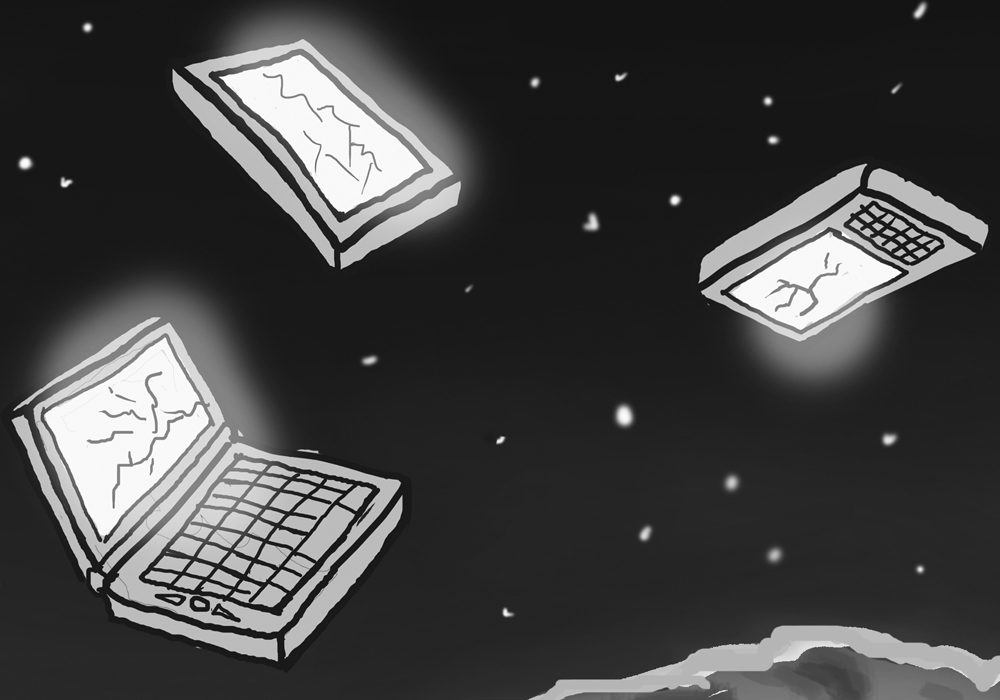Eleanor Higginson, Staff Writer
Featured illustration by Christopher Lai, Comics and Illustrations Editor
A 2014 study by a group of Canadian academics titled “Trolls Just Want to Have Fun” found that, in the words of Erin Buckels, a lead researcher with the University of Manitoba, there is a definite “relationship between sadism and trolling.”
This is just one example of numerous research papers, opinion columns, and talk-show hours devoted to the very modern phenomenon of online trolling: who does it, what causes it, and how to stop it.
Although a “troll” is defined concisely by the Collins English Dictionary as “a person who submits deliberately inflammatory articles to an internet discussion board,” the meaning of the word has expanded to fit a whole range of perpetrators, victims, and behaviours.
Everybody seems to be able to agree on the fact that trolling is harmful behaviour for individuals and society and can have potentially devastating consequences for victims, such as in the tragic cases of young teenagers who have committed suicide after being trolled online.
However, nobody has really examined the deeper ramifications of a society where so many people are channeling their energies into trolling, which appears to me as little more than a surface façade for a wider malaise.
Interestingly while searching for examples of online trolling, what struck me first was not the sheer vileness of some of the comments posted, but the prominence of the personal pronouns “I,” “me,” and “my” among the misanthropist ramblings.
The focus was very much not on the alleged personal failings of the person being trolled, but on what they had supposedly made the troll themselves suffer.
Examples of this can be found, for instance, when a player in a sports team disappoints an avid fan. People often felt empowered to insult others acting as representatives of certain groups, appointed by no clear authority.
And equally, the victims, while clearly suffering from bullying of the most primitive kind with iPhones, seemed almost indecently shocked and appalled by the fact that anyone would find fault with their selfies, opinion pieces, or photo albums. So shocked and appalled, in fact, that they often resorted to trolling their abuser, or even innocent bystanders, straight back.
The internet has truly leveled almost all playing fields. Yet, I would argue, there are some playing fields which were never supposed to be leveled without serious consequences.
Some professors are complaining that students are frequently failing to tell apart a reputable source and somebody’s often misinformed ramblings on a personal blog.
Call me elitist, but sometimes you don’t know enough about a certain subject to be broadcasting your views on it to everyone. While in this example only the unfortunate student’s essay grade may take a hit, there are more worrying examples.
For instance, amateur diagnostic websites offering ridiculous medical advice. Throughout all of this, the emphasis is fixed very firmly on the “I,” with the internet as our stage from which we broadcast all the trials and tribulations of daily life and mental meanderings that were never supposed to be shared with the world.
Another unsavoury aspect of modern society which is translating into online trolling is victim culture.
A sociological phenomenon almost as simultaneously horrifying and fascinating as online trolling are cases where complaints about the bullying behaviour has often been made to parents, schools, and even in some cases the police, and has been found that the alleged victim has actually trolled themselves.
Last year, 24-year-old Michelle Chapman became the first person sent to jail last for posting a series of abusive messages on her Facebook account, then reporting the bullying to the police in an attempt to frame her estranged family members.
While trolling yourself can clearly constitute a form of self-harm, many people actually practice “counter-trolling,” as a strategic form of creating sympathy for themselves, or provoking others into defending them.
It is surely a sad world when people are intentionally insulting themselves in a desperate bid to win the virtual compassion of faceless strangers.
There has also been the related phenomenon of public figures seeking to dismiss often valid criticism as coming from “trolls.” One example of this was British pop singer Lily Allen’s response to those who claimed her music video for her supposedly feminist song “Hard Out Here” was culturally appropriative and racist towards women of colour.
It’s become a cliché to complain that the internet has destroyed basic notions of self-respect and duty to others. In fact, it has undoubtedly given a voice to the voiceless and made it easier to speak truth to those in positions of power.
Yet, I can’t help feeling that some of these noble aims have gotten lost along the way. The most pertinent illustration of this was recently reading a newspaper only to find out that most of the “stories” were in fact coverage of some Twitter spat which had occurred the previous day.
Yet, like it or lump it, the internet is increasingly becoming our reality. So please, let us remember that behind the screens lies humanity, pretty much as equally inspiring and infuriating as it always was, let’s not make our future a dystopian one.
Tweet us, @excaliburYU



